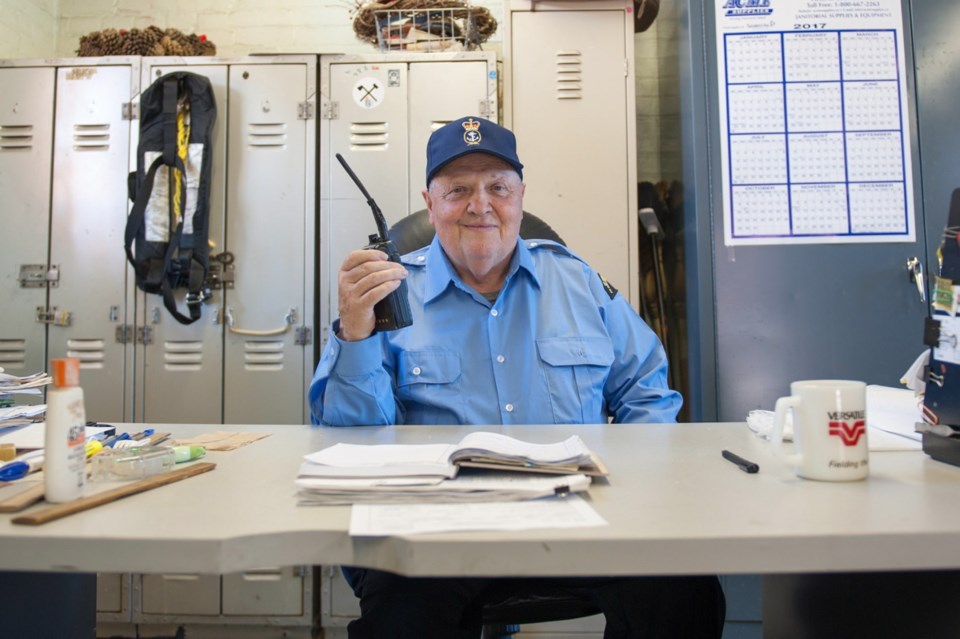Fred Webb concluded a lifetime with the Royal Canadian Navy on Thursday, a career in which the Cuban Missile Crisis was his closest brush with combat.
That 1962 diplomatic clash played out on the Atlantic side of North America. But its seriousness was made plain to Webb on HMCS Stettler, where he was then serving in the Pacific.
“They started to fit out the wardroom as an operating theatre, bringing in all these surgical instruments,” the 77-year-old Saanich man said in an interview at CFB Esquimalt.
“That had kind of a sobering effect.”
Webb handed in his official identification card on Thursday to dockyard authorities, finishing a 58-year career either in the navy or linked to it. That length of time exceeds the half life of the navy, itself only 107 years old.
He joined in 1959 as an ordinary seaman. He retired as a master seaman in 1981 and with only one day off to relax he stepped into a civilian job as a deckhand with the Queen’s Harbour Master, where he has worked ever since.
He was on the jetty crew, putting out gangways for ships, assisting with lines as tugs moved barges and other vessels.
“I’m going to miss the people I’ve been associated with all these years,” Webb said. “But it will be nice to do what I want to do when I want to do it.”
Webb never married and has no children. But he talks of a woman friend who keeps him busy. The couple is planning a trip to Thailand in September.
“And I’ve got a garden,” he said. “All old sailors have gardens because it doesn’t strain the powers of concentration too much.”
Webb first stepped into the navy and stayed because of his strong feeling of tradition and service. He has family members who served at sea and on land in war.
Some didn’t come back and some came back forever scarred.
His father began in the Royal Canadian Naval Volunteer Reserve before the start of the Second World War. By the start of the war he had taken a commission and didn’t retire until 1965 as a lieutenant commander.
His uncle, also a navy man, survived the sinking of HMCS Fraser only to be posted to the HMCS Margaree which sank and drowned him.
Webb has four great uncles who signed up for the First World War and suffered permanent lung damage in gas attacks.
So, when Webb signed up as an ordinary seaman, it was with a tremendous sense of family honour. He opted for the ship’s gunnery section because that’s where his uncle had served.
His first ship, in 1960, was the destroyer HMCS Skeena posted in the Pacific and commanded by Richard Leir, a man who had survived three years in a Japanese prisoner of war camp.
Leir would eventually retire with the rank of rear admiral. For Webb he will always remain the finest sailor and gentleman with whom he served. Despite their difference in rank, he was a commander who always greeted him by name on the ship’s bridge every morning.
“He would turn to me and say: ‘Good morning Master Seaman Webb and how are we this morning?’ and I would say: ‘Oh, just fine, sir, just fine,’ ” Webb recalled.
“Then he would always look out and say: ‘Well, it’s going to be a glorious day, a glorious day,’ ” he said. “Every day was a glorious day for him.”
And for Webb it’s one memory of a life with the navy that will remain close. For him, navy people are just special.
“Living in crowded conditions on and around mess decks, it just makes people different,” he said. “You’ve got to have a special sense of humour.”



